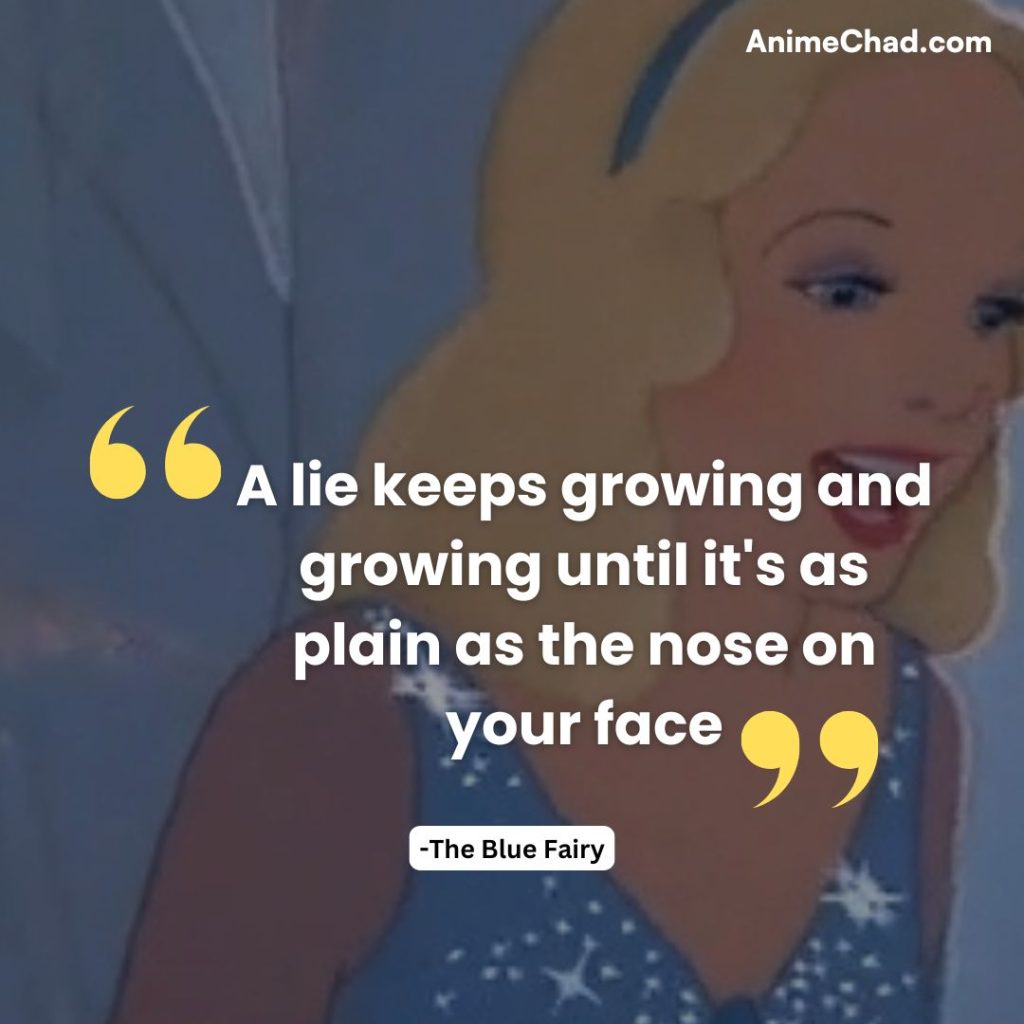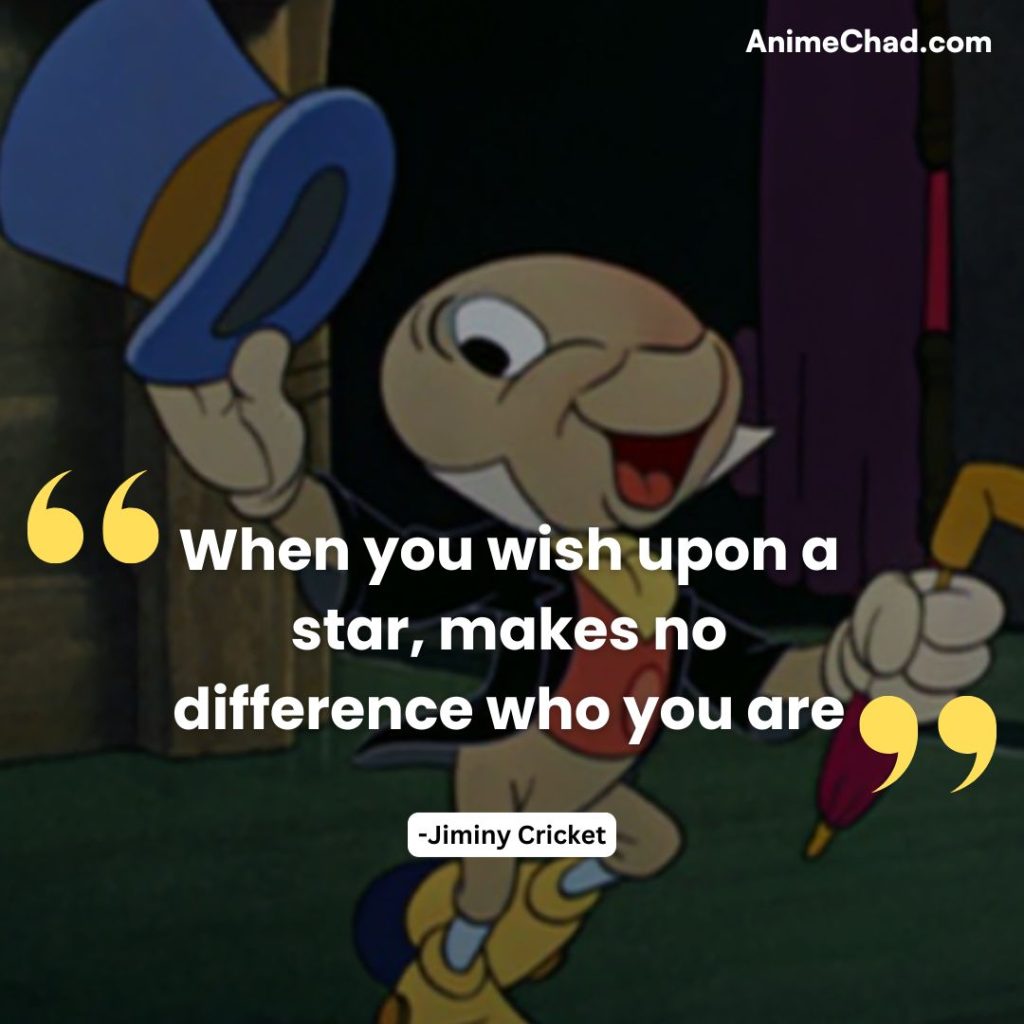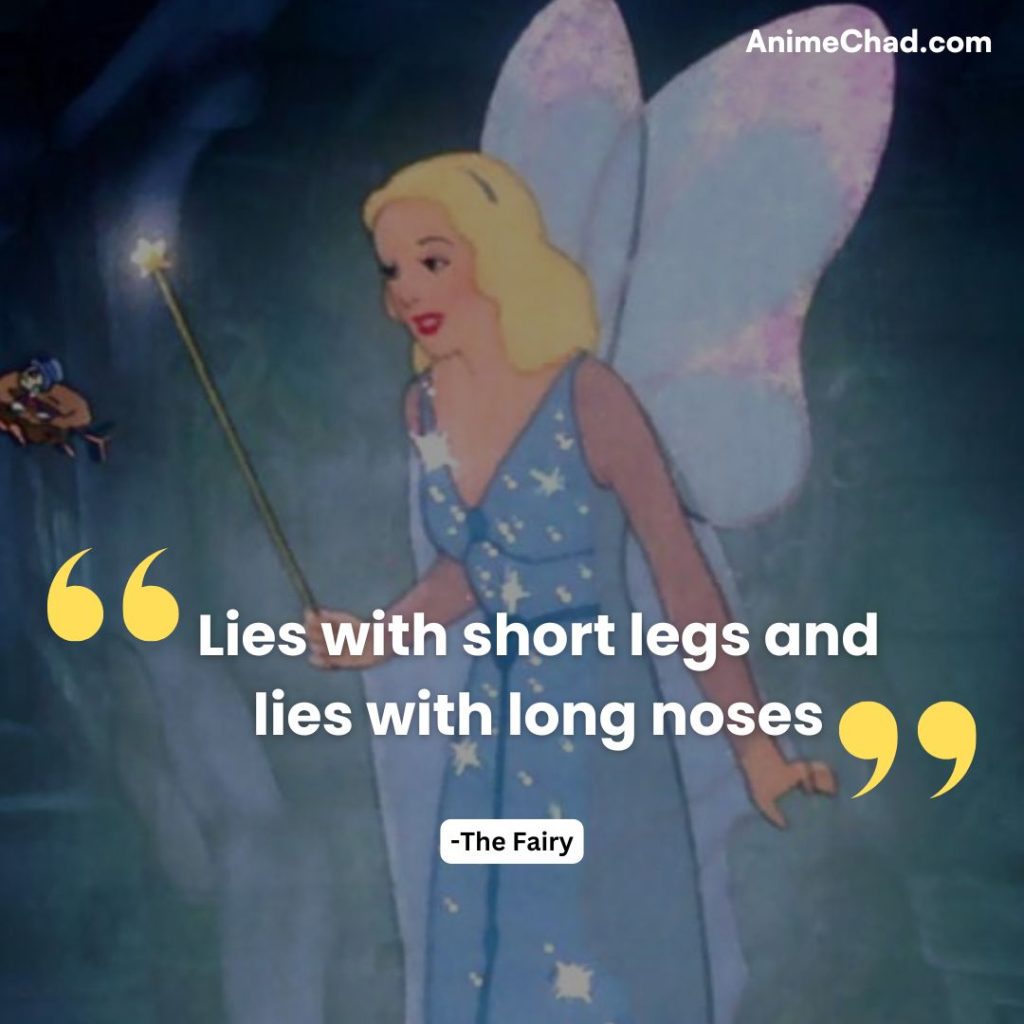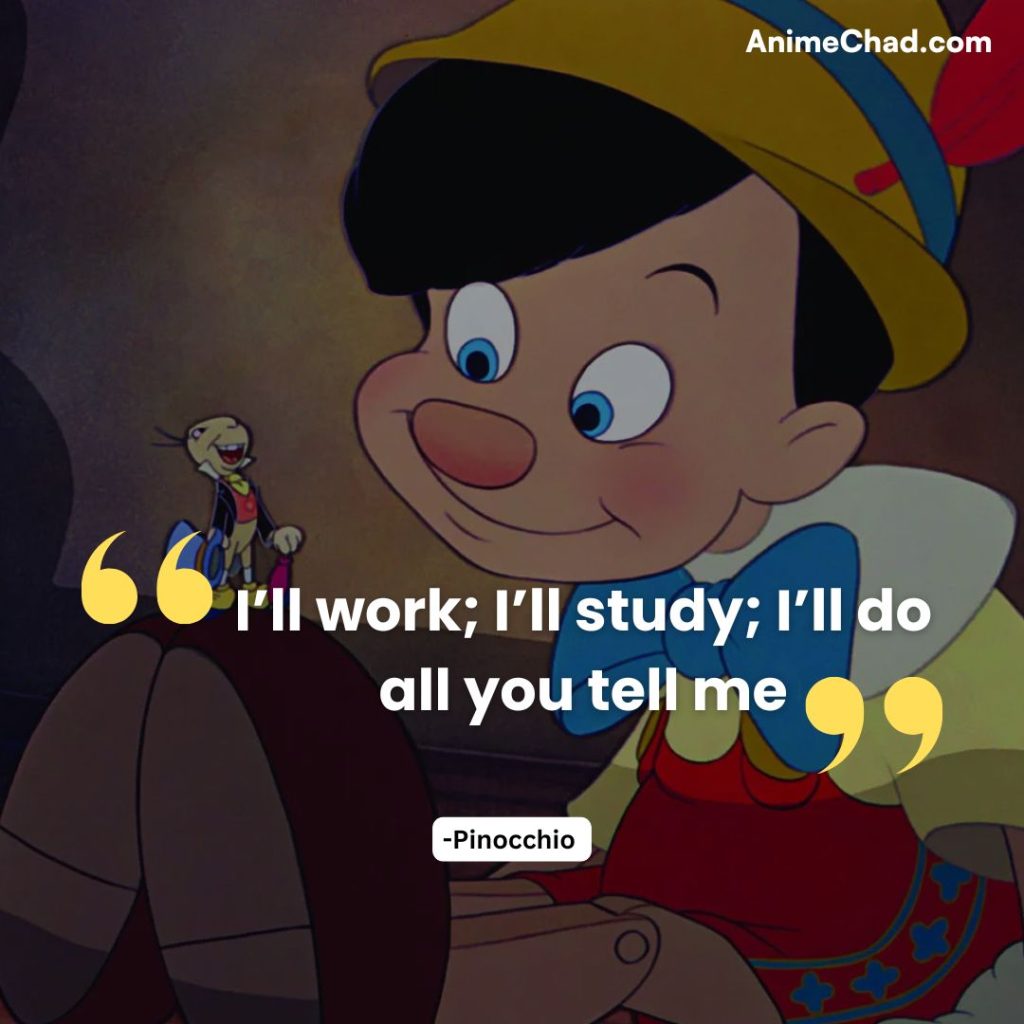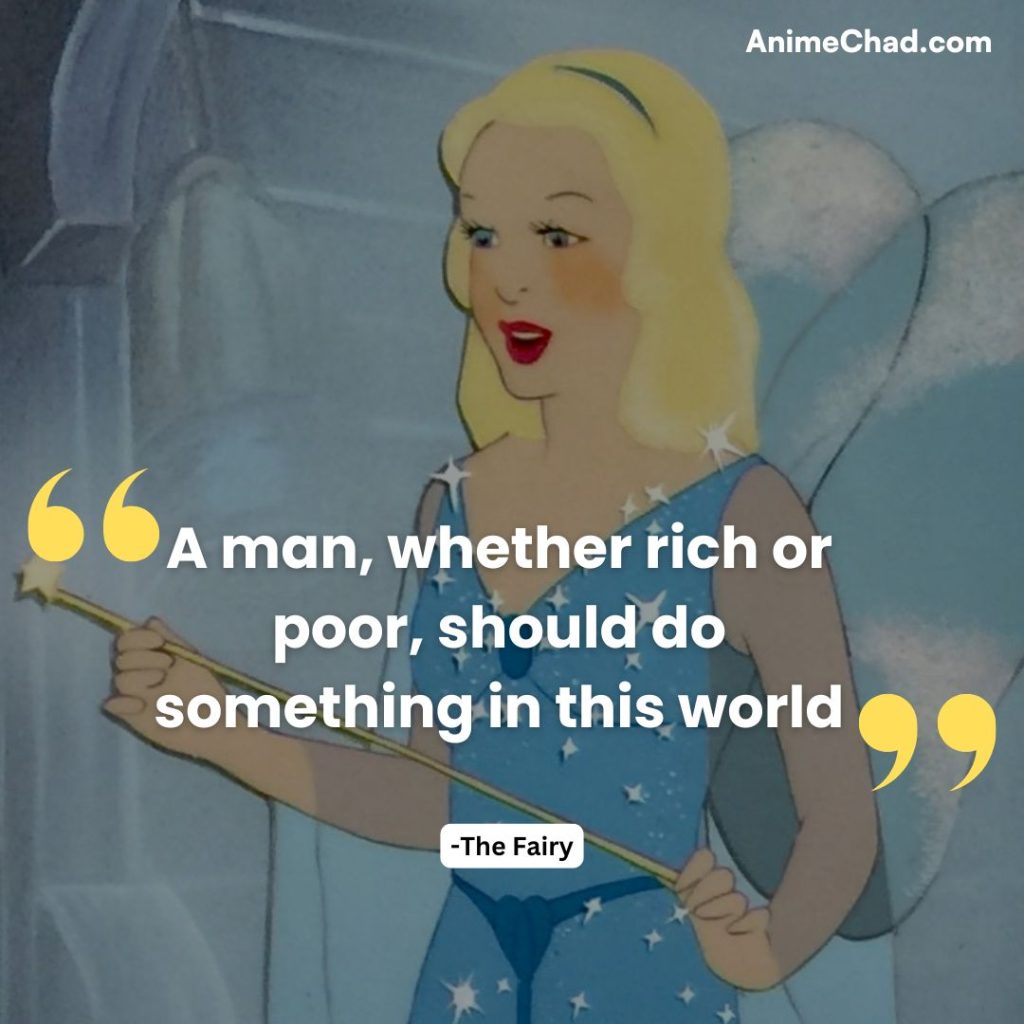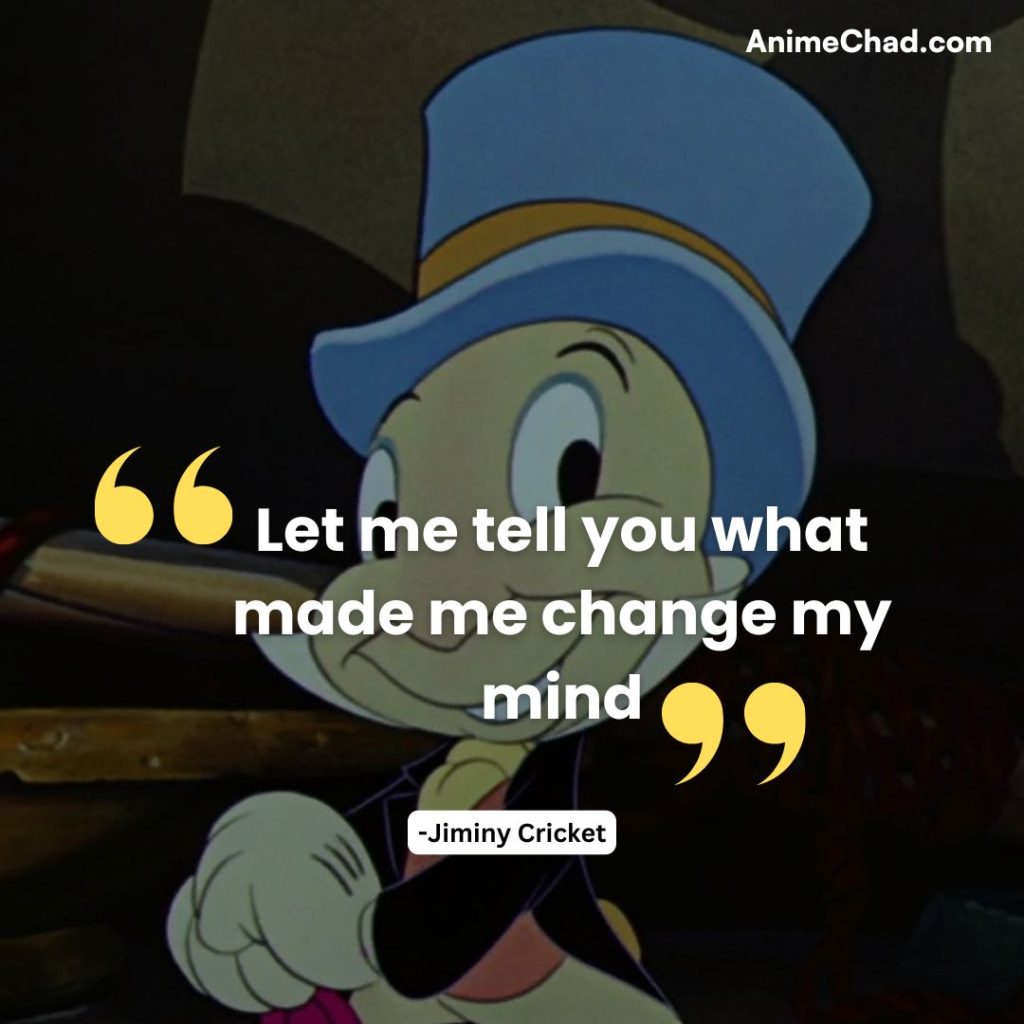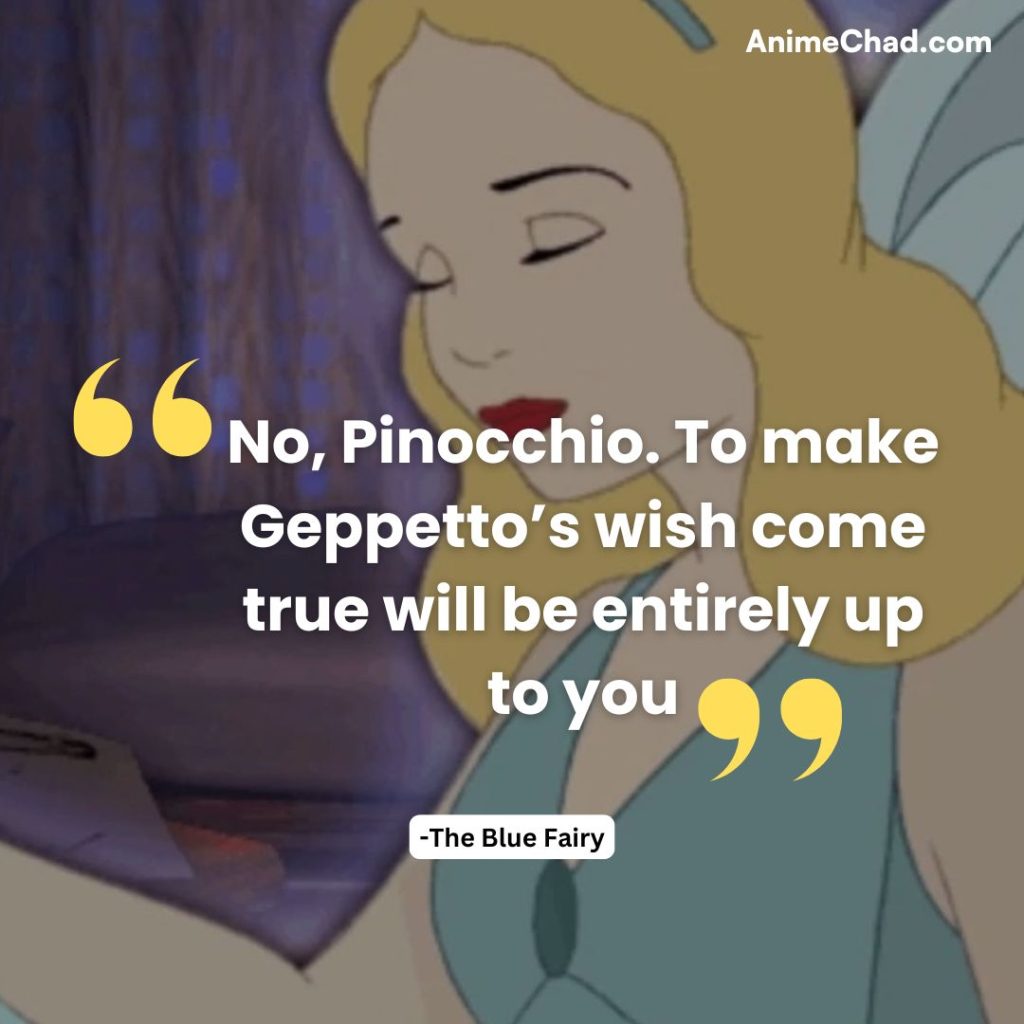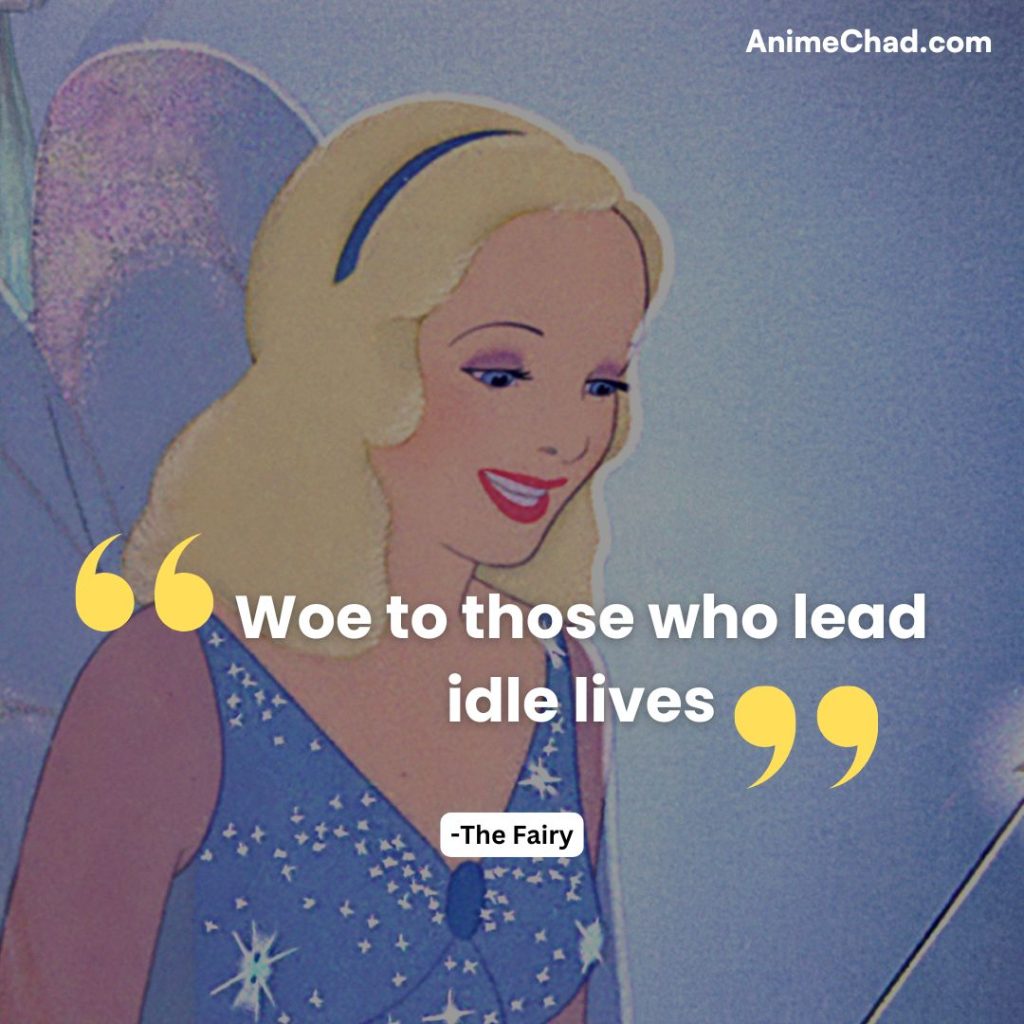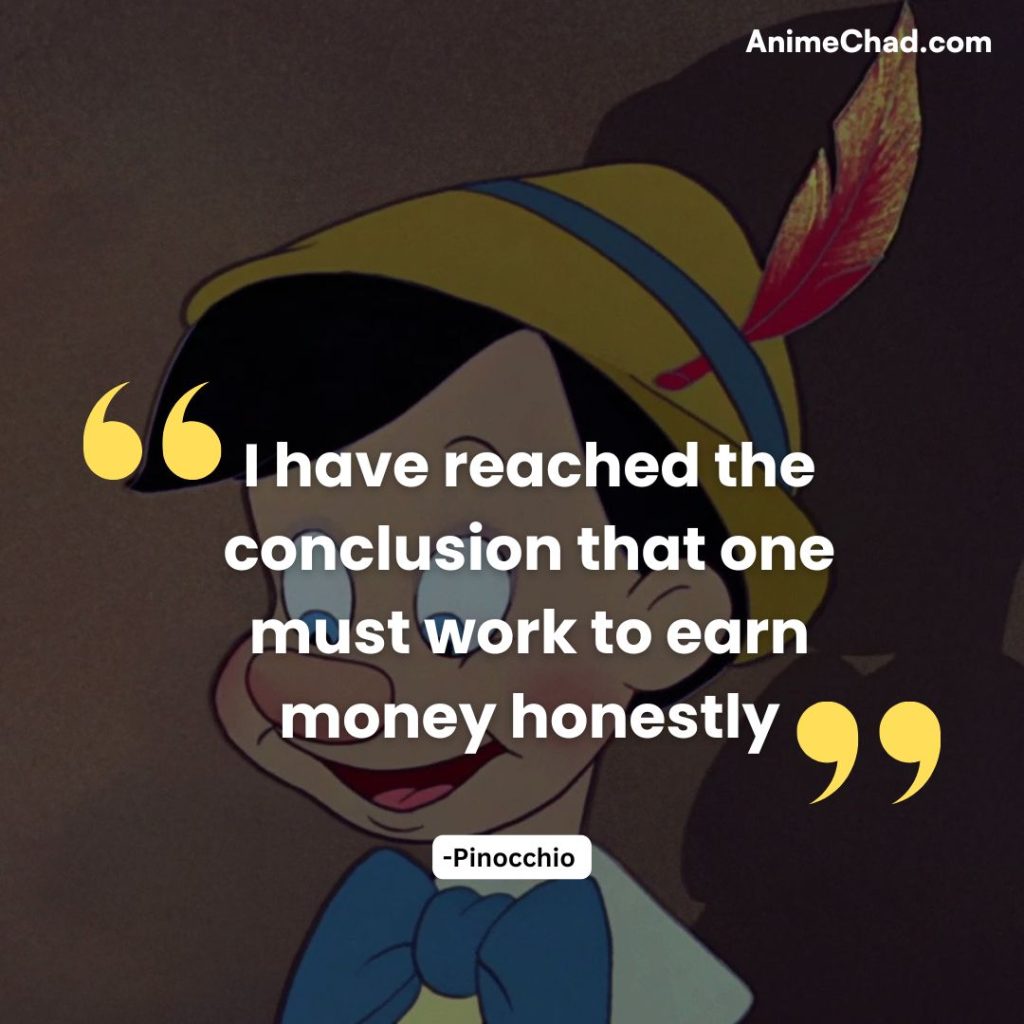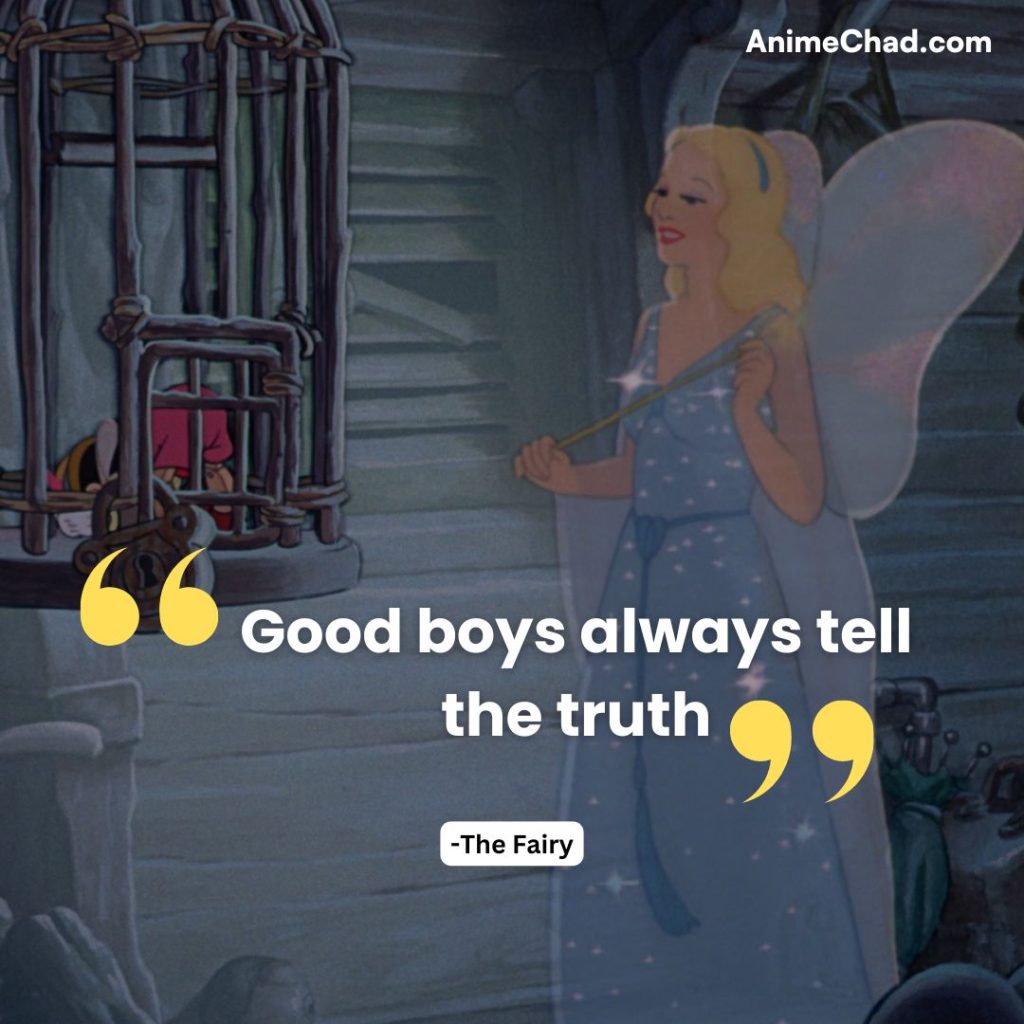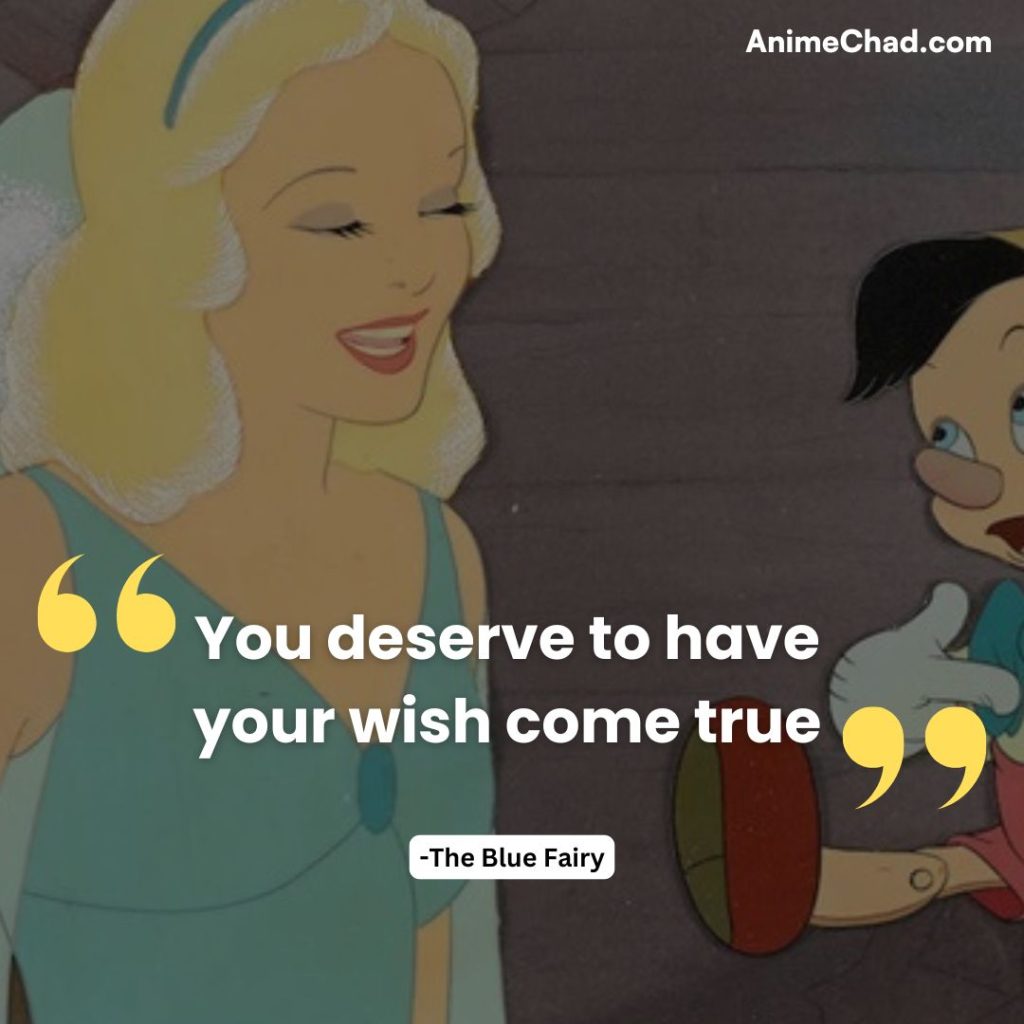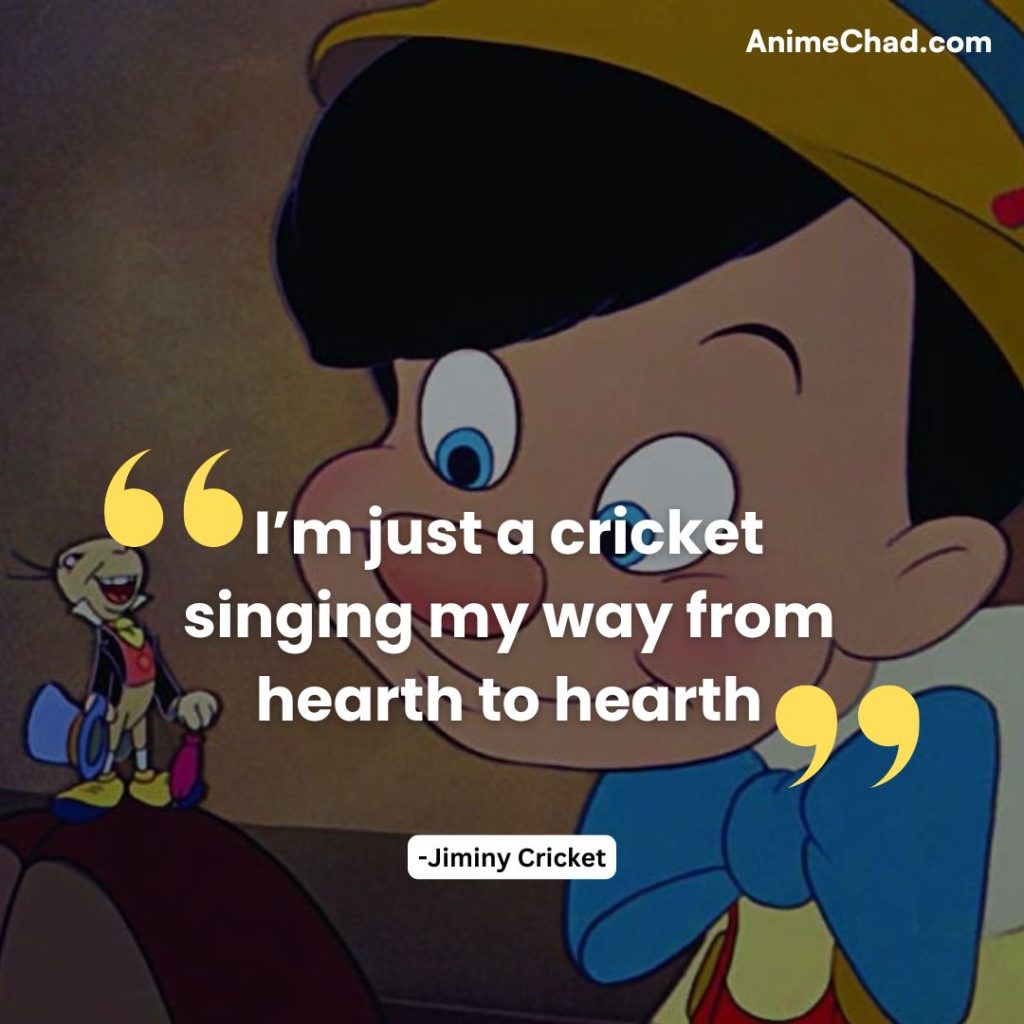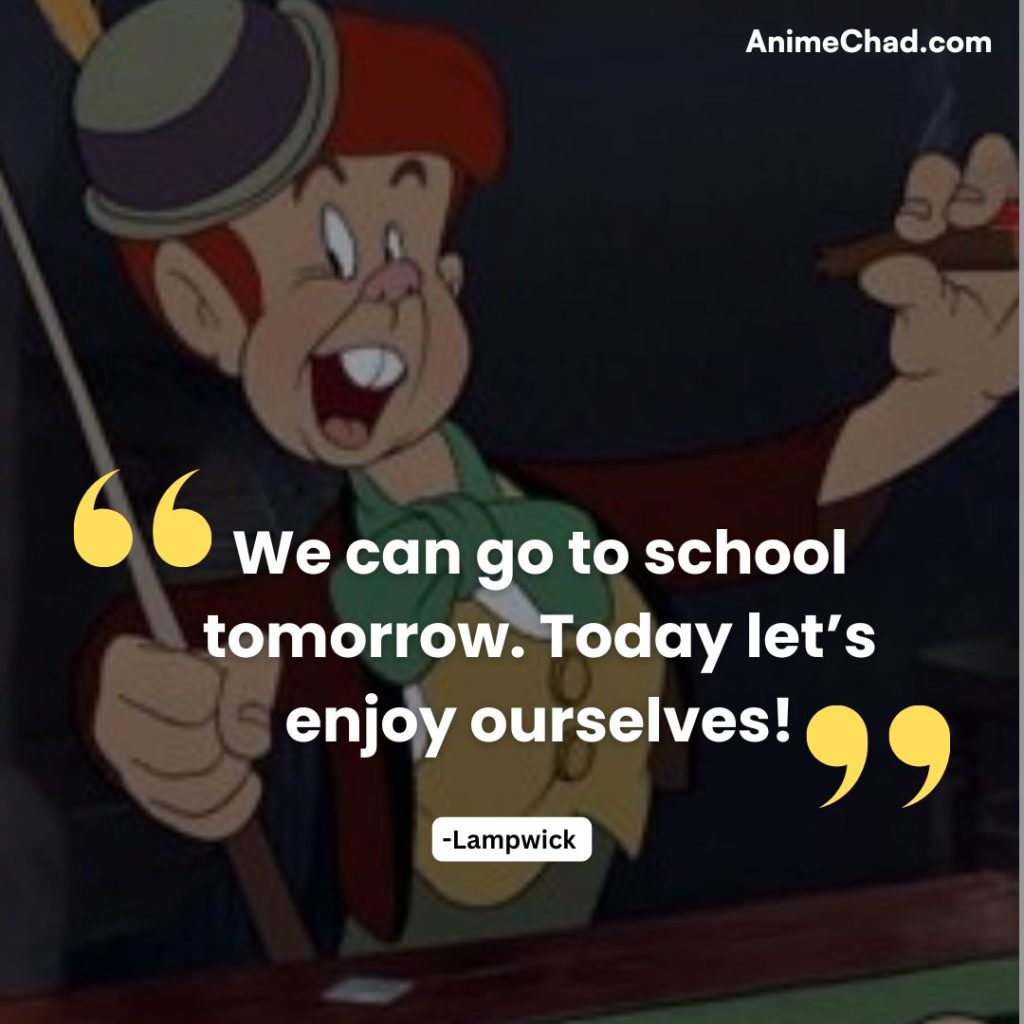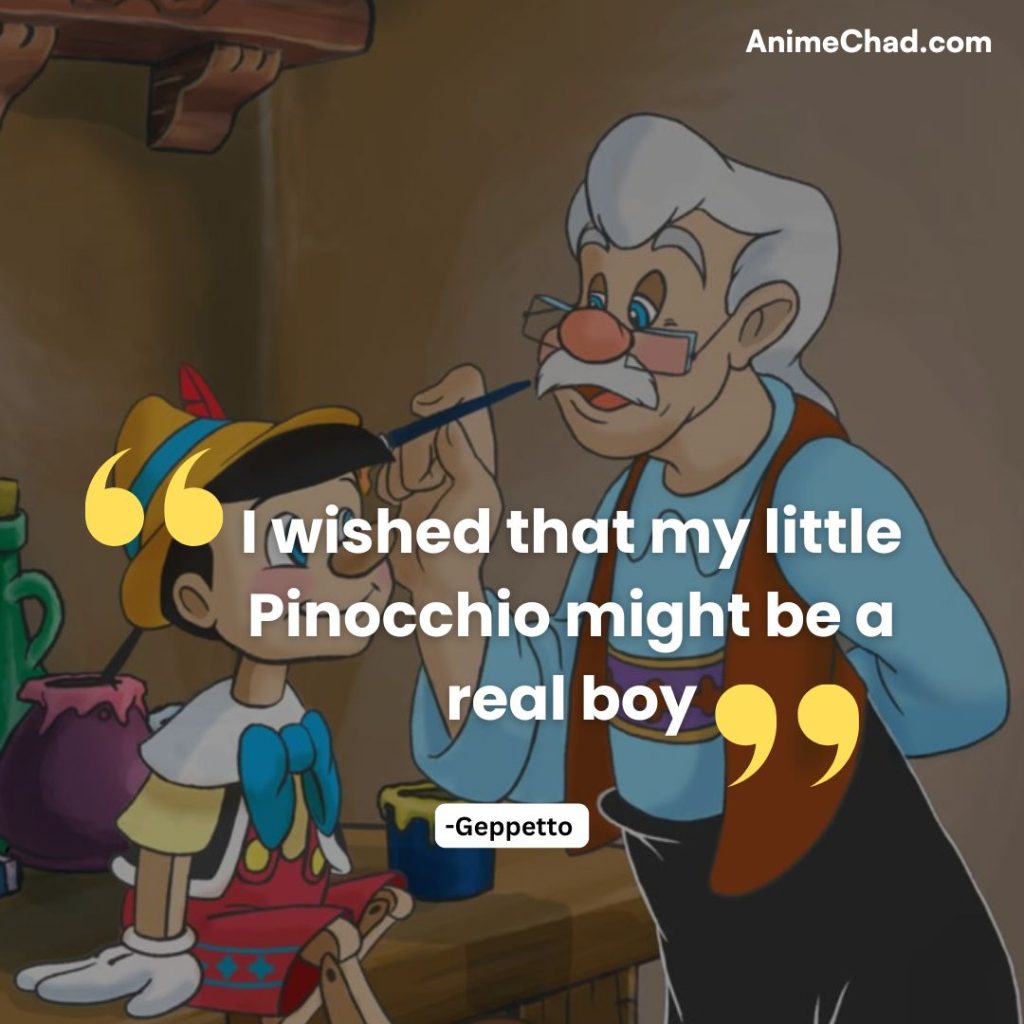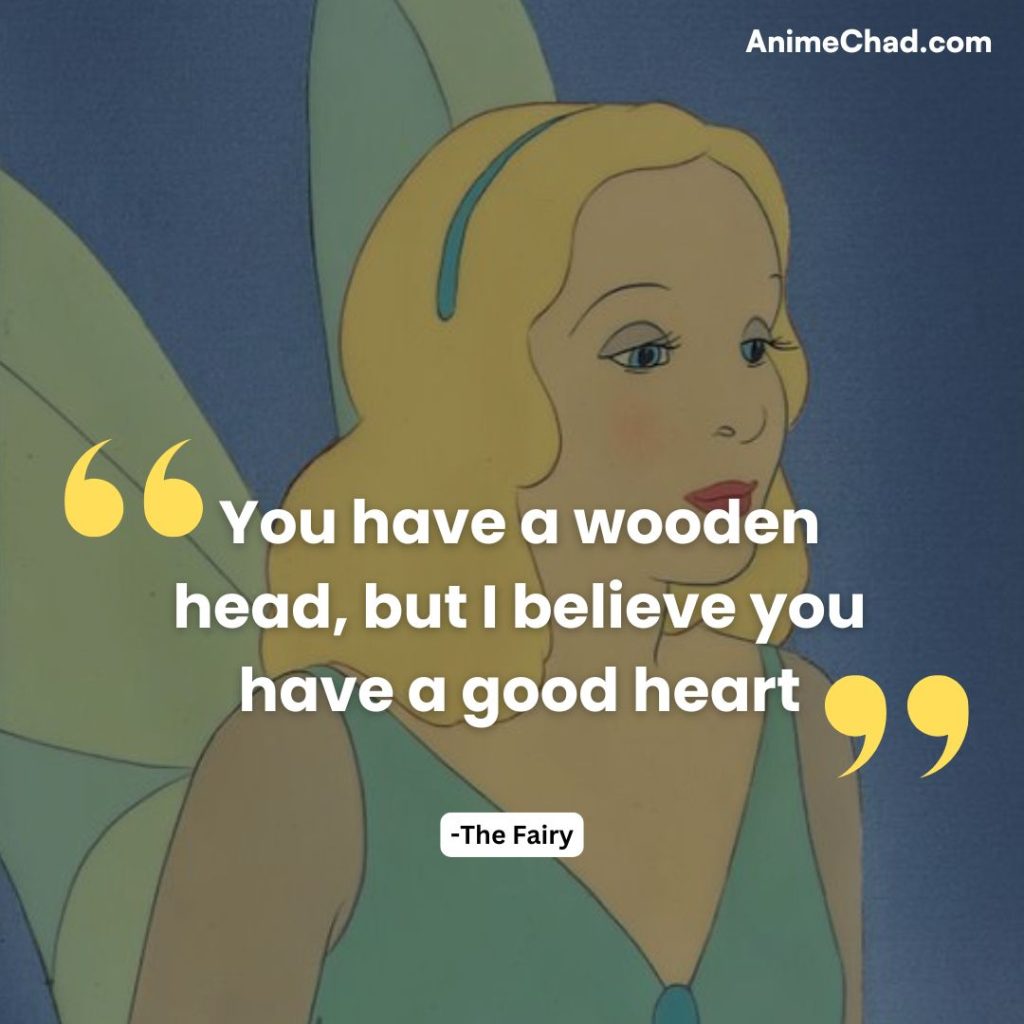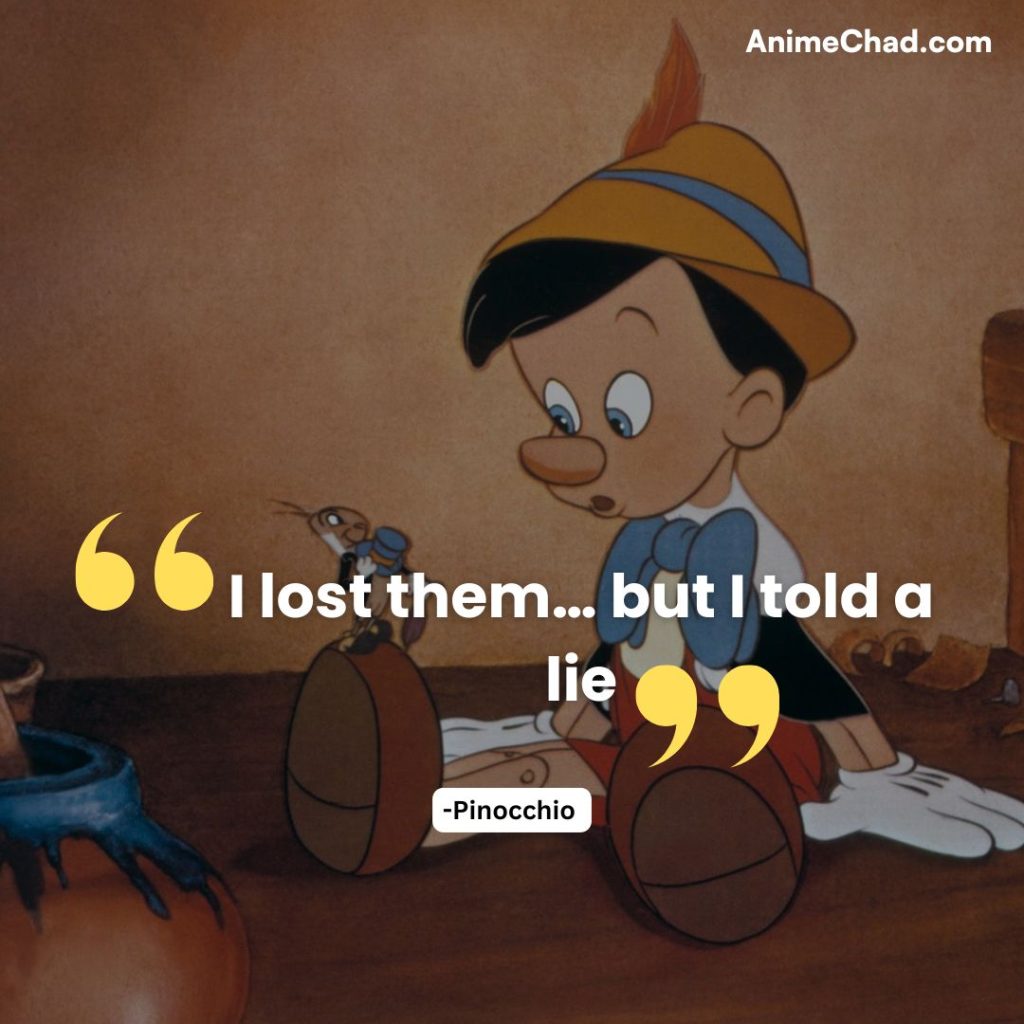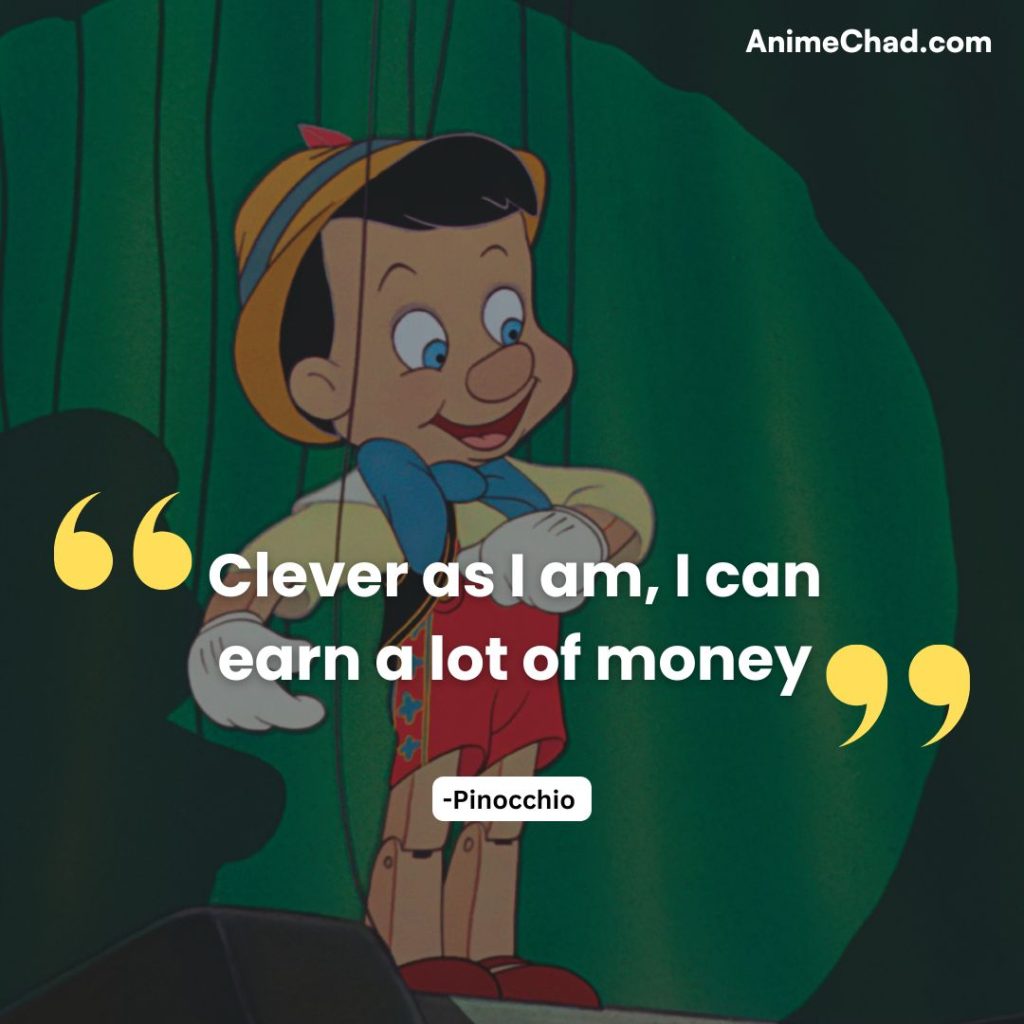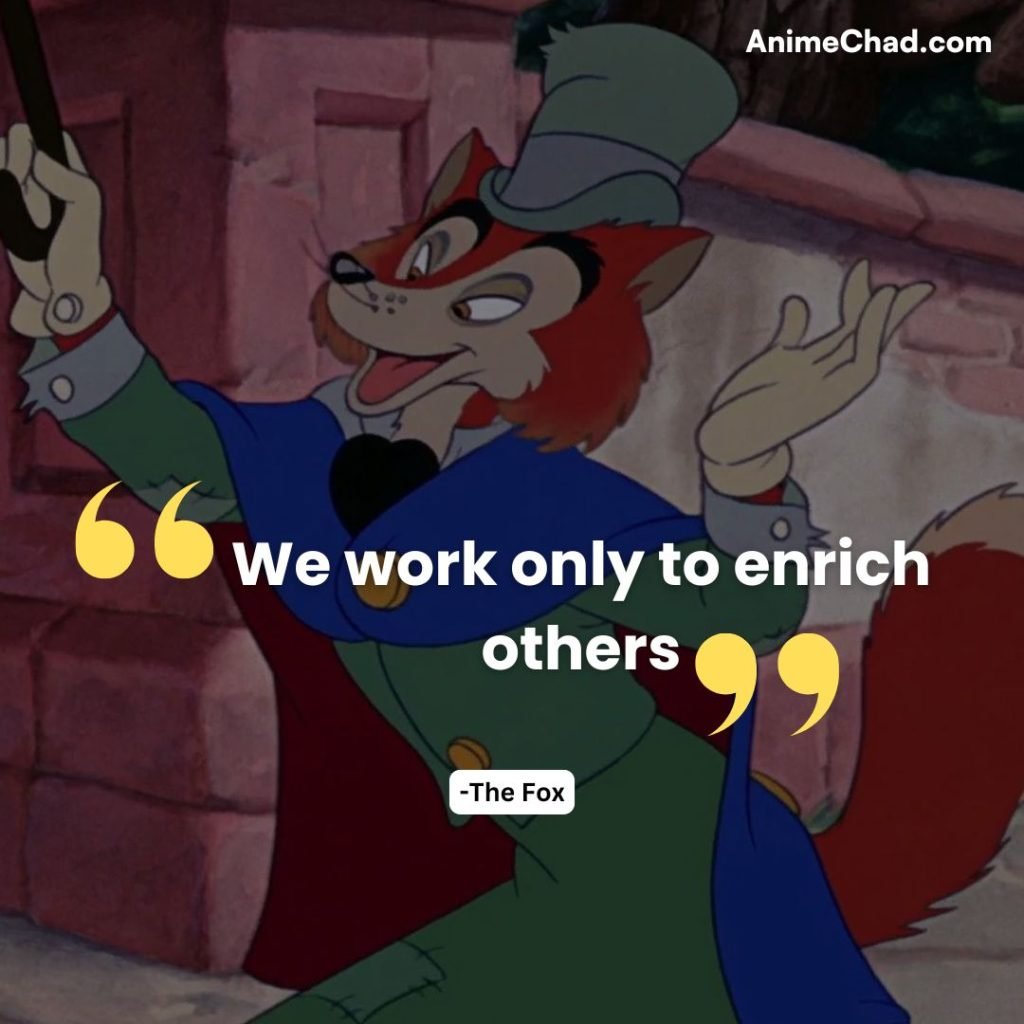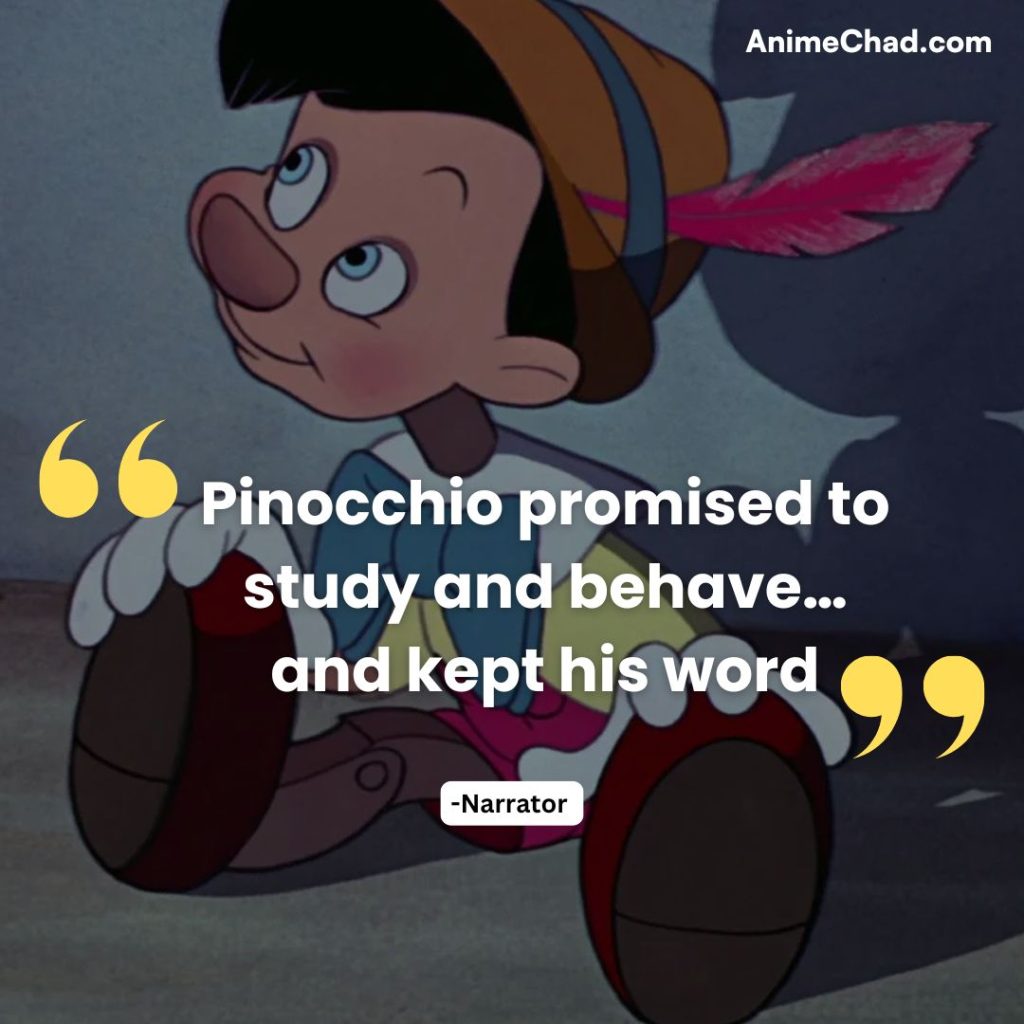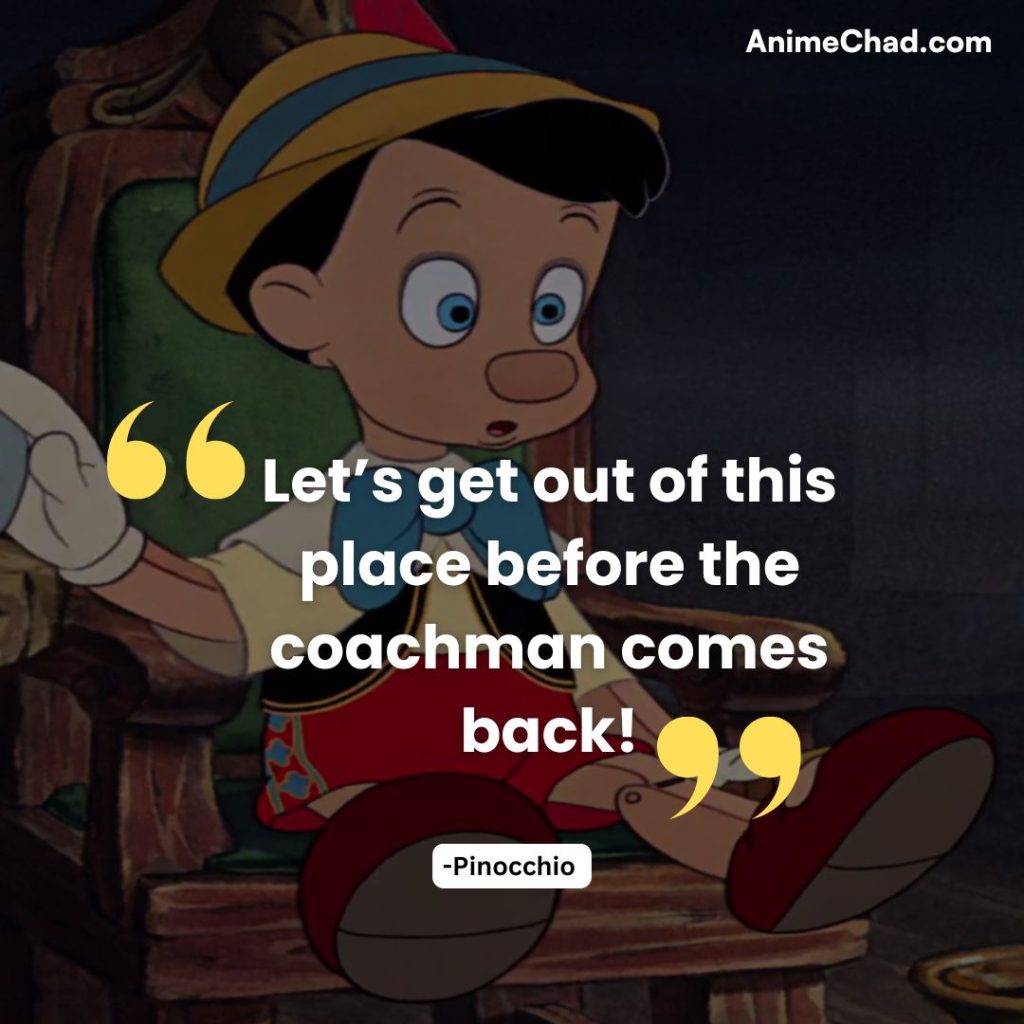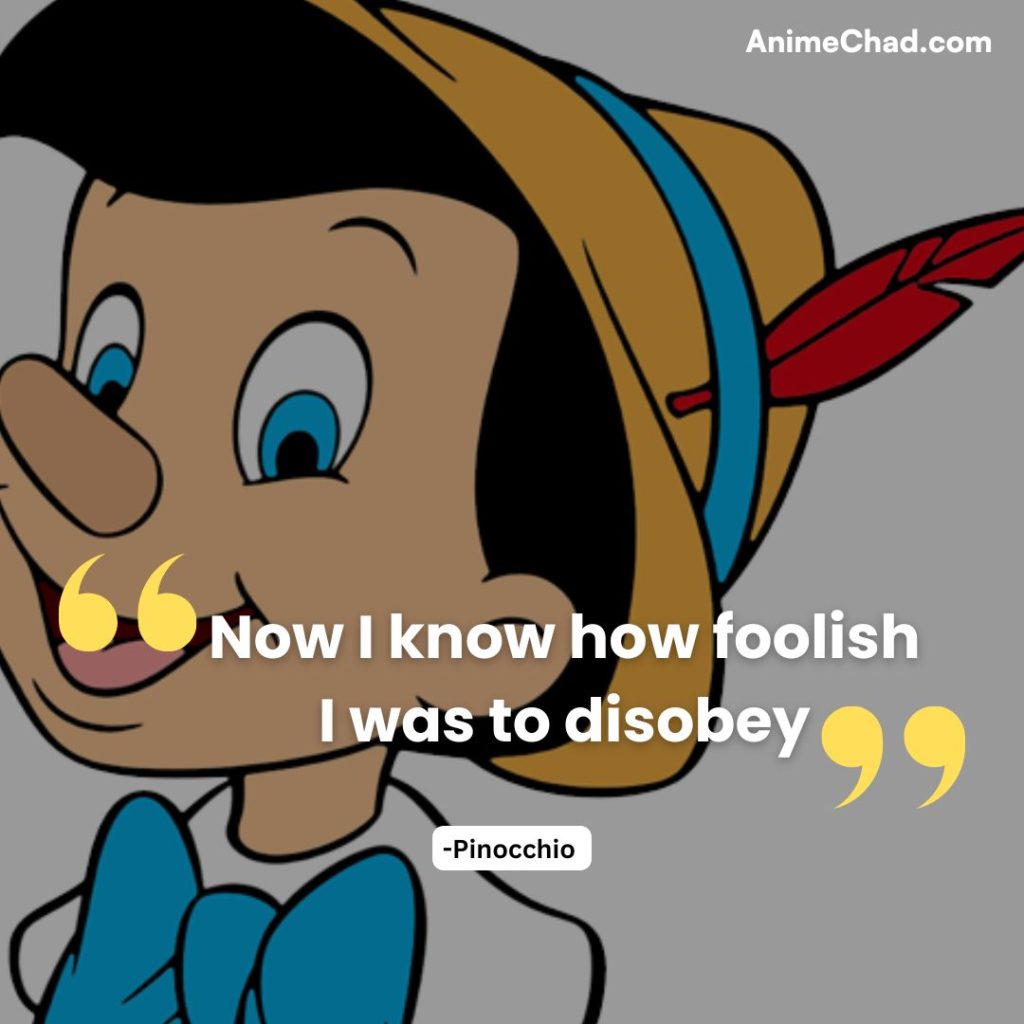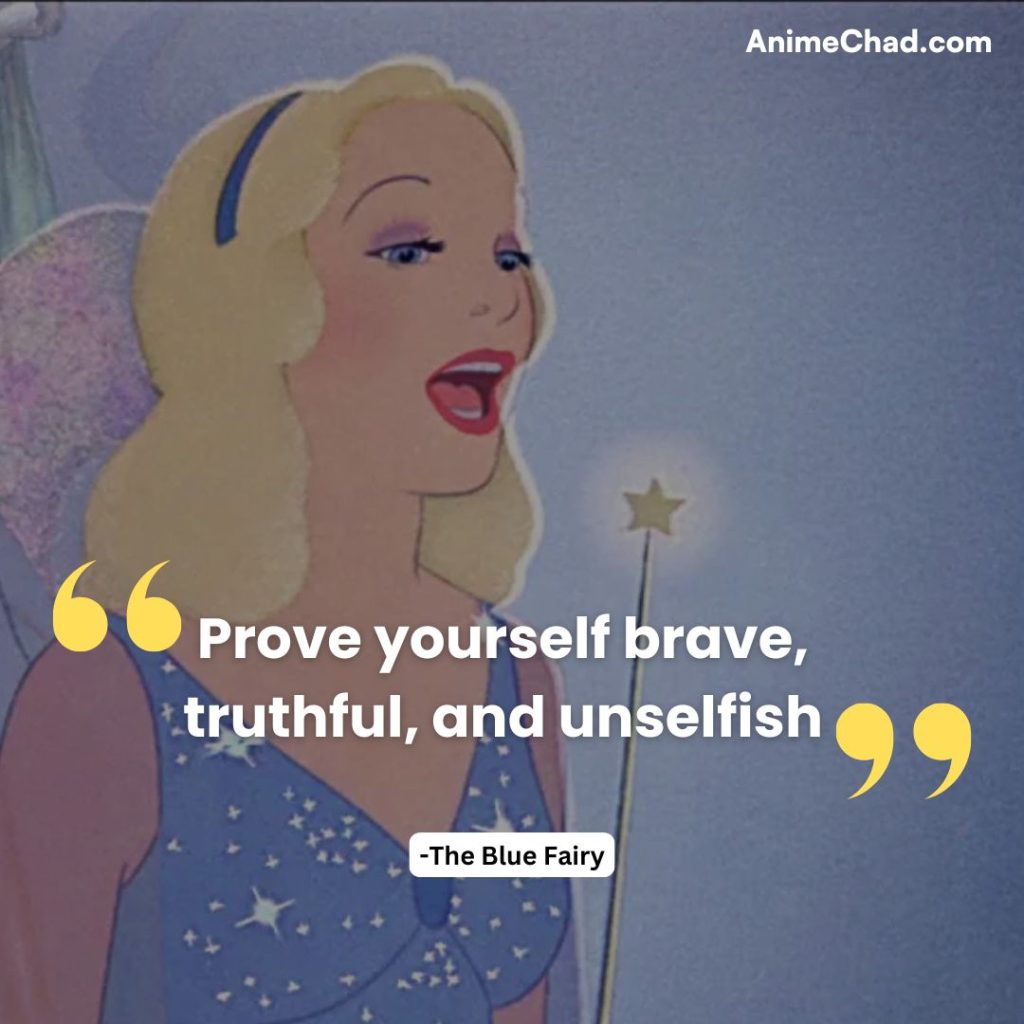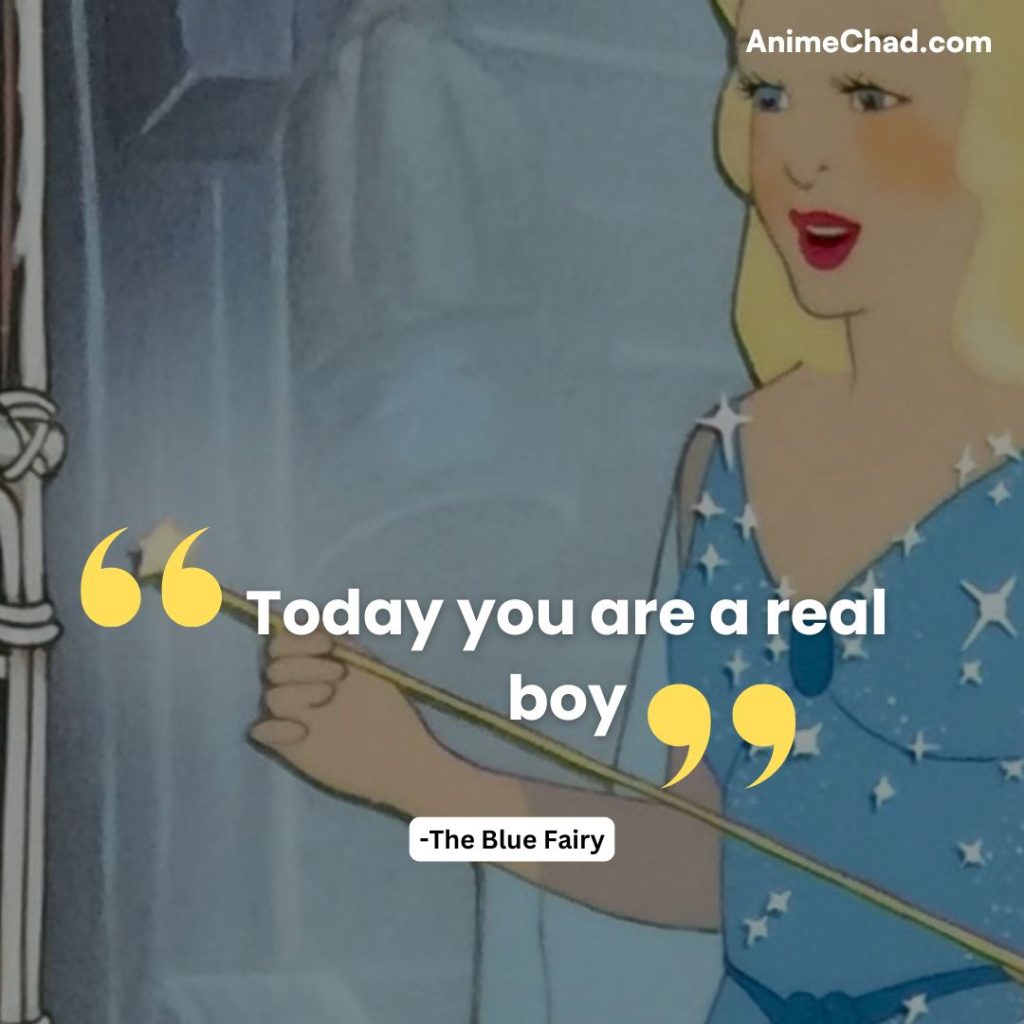Pinocchio follows a wooden puppet’s quest to become a real boy, weaving themes of honesty, transformation, and moral growth through fantastical trials.
Carlo Collodi’s 1883 novel and Disney’s 1940 adaptation explore consequences of deceit, the value of hard work, and the redemptive power of selflessness.
This collection highlights pivotal quotes that define Pinocchio’s journey and the timeless lessons embedded in his story.
A lie keeps growing and growing until it’s as plain as the nose on your face
Speaker: The Blue Fairy (Disney Film)
Context: Delivered after Pinocchio’s nose grows, visually reinforcing the destructive nature of dishonesty.
When you wish upon a star, makes no difference who you are
Speaker: Jiminy Cricket (Disney Film)
Context: The film’s iconic opening song emphasizes hope and the universality of dreams.
Lies with short legs and lies with long noses
Speaker: The Fairy (Chapter 17, Collodi’s Novel)
Context: The Fairy teaches Pinocchio about deception’s physical and moral consequences.
I’ll work; I’ll study; I’ll do all you tell me
Speaker: Pinocchio (Chapter 15, Collodi’s Novel)
Context: Pinocchio vows to reform, marking his first step toward maturity.
A man, whether rich or poor, should do something in this world
Speaker: The Fairy (Chapter 25, Collodi’s Novel)
Context: Stresses the novel’s central theme: purpose through labor.
Someday, I’m gonna be a real boy!
Speaker: Pinocchio (Disney Film)
Context: Pinocchio’s driving desire, repeated as a mantra of aspiration.
Let me tell you what made me change my mind
Speaker: Jiminy Cricket (Disney Film)
Context: Jiminy’s narration frames the story as a cautionary tale.
No, Pinocchio. To make Geppetto’s wish come true will be entirely up to you
Speaker: The Blue Fairy (Disney Film)
Context: Shifts responsibility to Pinocchio, underscoring agency in redemption.
Woe to those who lead idle lives
Speaker: The Fairy (Chapter 25, Collodi’s Novel)
Context: Condemns laziness, a recurring vice Pinocchio must overcome.
I have reached the conclusion that one must work to earn money honestly
Speaker: Pinocchio (Chapter 24, Collodi’s Novel)
Context: Pinocchio’s realization after being enslaved on Pleasure Island.
Good boys always tell the truth
Speaker: The Fairy (Chapter 17, Collodi’s Novel)
Context: Direct moral instruction contrasting Pinocchio’s earlier deceit.
You deserve to have your wish come true
Speaker: The Blue Fairy (Disney Film)
Context: Rewards Geppetto’s kindness, tying virtue to tangible outcomes.
I’m just a cricket singing my way from hearth to hearth
Speaker: Jiminy Cricket (Disney Film)
Context: Humble self-introduction, establishing his role as moral guide.
We can go to school tomorrow. Today let’s enjoy ourselves!
Speaker: Lampwick (Disney Film)
Context: Temptation leading to Pinocchio’s Pleasure Island downfall.
What’s the matter? Cat got your tongue?
Speaker: Stromboli (Disney Film)
Context: Antagonist’s taunt highlighting Pinocchio’s vulnerability to manipulation.
I wished that my little Pinocchio might be a real boy
Speaker: Geppetto (Disney Film)
Context: Geppetto’s selfless wish, framing the narrative’s emotional core.
If you do not like school, learn a trade to earn an honest living
Speaker: The Talking Cricket (Chapter 4, Collodi’s Novel)
Context: Early advice ignored, foreshadowing Pinocchio’s hardships.
You have a wooden head, but I believe you have a good heart
Speaker: The Fairy (Chapter 15, Collodi’s Novel)
Context: Acknowledges Pinocchio’s potential for growth despite flaws.
I lost them… but I told a lie
Speaker: Pinocchio (Chapter 17, Collodi’s Novel)
Context: Admitting deceit after his nose grows, a turning point.
Clever as I am, I can earn a lot of money
Speaker: Pinocchio (Chapter 16, Collodi’s Novel)
Context: Naive arrogance before realizing the value of humility.
We work only to enrich others
Speaker: The Fox (Chapter 12, Collodi’s Novel)
Context: Ironic lie exposing the Fox’s manipulative greed.
Pinocchio promised to study and behave… and kept his word
Speaker: Narrator (Chapter 34, Collodi’s Novel)
Context: Culmination of Pinocchio’s transformation into diligence.
Let’s get out of this place before the coachman comes back!
Speaker: Pinocchio (Disney Film)
Context: Panicked plea during Pleasure Island escape, showing newfound wisdom.
Now I know how foolish I was to disobey
Speaker: Pinocchio (Chapter 29, Collodi’s Novel)
Context: Post-resurrection reflection, embracing accountability.
Prove yourself brave, truthful, and unselfish
Speaker: The Blue Fairy (Disney Film)
Context: Final challenge, linking virtue to Pinocchio’s ultimate goal.
Today you are a real boy
Speaker: The Blue Fairy (Chapter 36, Collodi’s Novel)
Context: Climactic reward for Pinocchio’s perseverance and moral growth.


